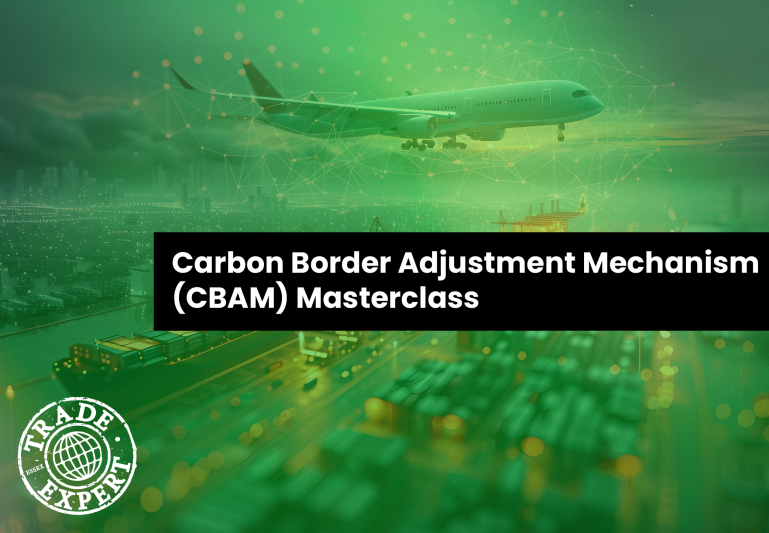
Following on from our recent webinar, the aim of this virtual half day masterclass is to demystify the Carbon Border Adjustment Mechanism and provide businesses with a clear understanding of how to navigate compliance and create a competitive advantage.
Introduction
The EU’s Carbon Border Adjustment Mechanism (CBAM) came into force in October 2023, with EU importers now obligated to report on the specific embedded emissions of certain goods. If the goods exported to the EU fall under the scope of CBAM, EU customers will be expecting this emissions data from their non-EU suppliers, and complying with reporting standards will require a comprehensive understanding of emissions produced in the supply chain and in the supplier’s own production processes. As CBAM moves from its current transition period to the definitive period beginning January 2026, greater emphasis will be applied on a product’s embedded emissions from a commercial perspective, as a carbon price will need to be paid to offset these emissions.
Coupled with the UK’s proposed CBAM coming into full force in 2027, covering the import of certain products, it is crucial companies gain a full understanding of the embedded emissions within their supply chains.
Even if the products exported or imported do not currently fall under the EU CBAM or proposed UK CBAM, their scope is expected to widen to cover more sectors in the future, so this may be the opportunity to gain a valuable understanding of what to prepare for.
Agenda
What will you take away from the session
Date: Wednesday 5 February 9.30am to 12.30pm
Virtual: Zoom Platform
Cost to attend: Members £250.00 + VAT and Non-Members £330.00 + VAT
Please note: This event will not be recorded and any material will only be circulated to those that attend.
The Masterclass will be delivered by Auditel
 Auditel is a successful, and one of the longest established, carbon solutions organisation in the UK, with over 100 experienced carbon and procurement consultants. We have helped hundreds of organisations throughout the UK and Ireland to measure their operational carbon footprints and then guide them towards alternatives to reduce their carbon footprint whilst also reducing operating costs.
Auditel is a successful, and one of the longest established, carbon solutions organisation in the UK, with over 100 experienced carbon and procurement consultants. We have helped hundreds of organisations throughout the UK and Ireland to measure their operational carbon footprints and then guide them towards alternatives to reduce their carbon footprint whilst also reducing operating costs.
